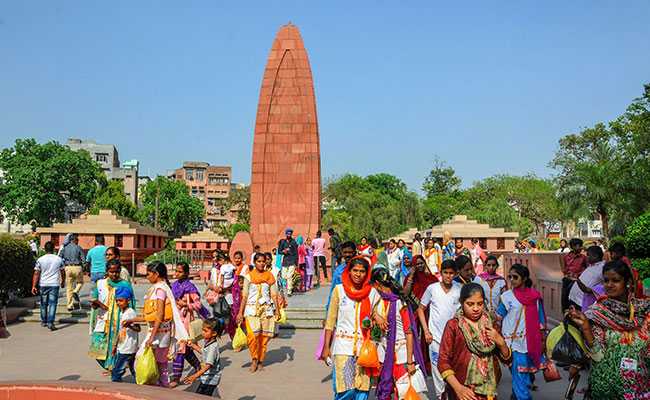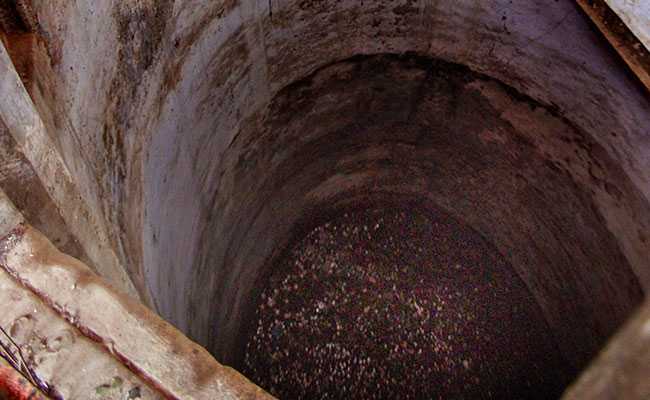
The Jallianwala Bagh massacre, also known as the Amritsar massacre, took place on April 13, 1919. This is remembered as one of the deadliest attacks in the history of the world and is also a turning point in India's freedom struggle. At the Jallianwala Bagh, which is garden spread across 6 to 7 acres, a large gathering of 15,000-20,000 people with a majority of Sikhs, took place to celebrate the Punjabi harvest festival of Baisakhi. They had also gathered to revolt against the repressive Rowlatt Act that provided for stricter control of the press, arrests without warrant and indefinite detention without trial. But little did they know what the British India Army had in mind.

People come from around the world to visit the Jallianwala Bagh.
Here's what happened in the Jallianwala Bagh massacre of April 13, 1919 in Amritsar:
1. On this day, around 50 troops of the British Indian Army, under the command of Colonel Reginald Dyer, fired rifles into a crowd of Baishakhi pilgrims, who had gathered in Jallianwala Bagh, Amritsar, Punjab.
2. The civilians, that had a majority of Sikh population, had gathered in Jallianwala Bagh to celebrate the harvest festival and also to condemn the arrest and deportation of two national leaders, Satya Pal and Dr Saifuddin Kitchlew.
3. On Colonel Dyer's orders, his troops indiscriminately fired on the group of gathered civilians for about 10 minutes.

The well inside Jallianwala Bagh where many civilians had jumped to save themselves from bullets.
4. According to British government, the Jallianwala Bagh massacre left 379 dead and 1,200 wounded. The Indian National Congress, however, estimated that more than were 1,500 injured, with approximately 1,000 dead.
5. The incident fueled anger among people, leading to the Non-cooperation Movement of 1920-22.
On the 99th anniversary of the Jallianwala Bagh massacre, Prime Minister Narendra Modi tweeted, "Tributes to the brave martyrs of the Jallianwala Bagh massacre. The indomitable spirit of the martyrs will always be remembered. They sacrificed their lives for our freedom."
Tributes to the brave martyrs of the Jallianwala Bagh massacre. The indomitable spirit of the martyrs will always be remembered. They sacrificed their lives for our freedom.
- Narendra Modi (@narendramodi) April 13, 2018
Track Latest News Live on NDTV.com and get news updates from India and around the world

